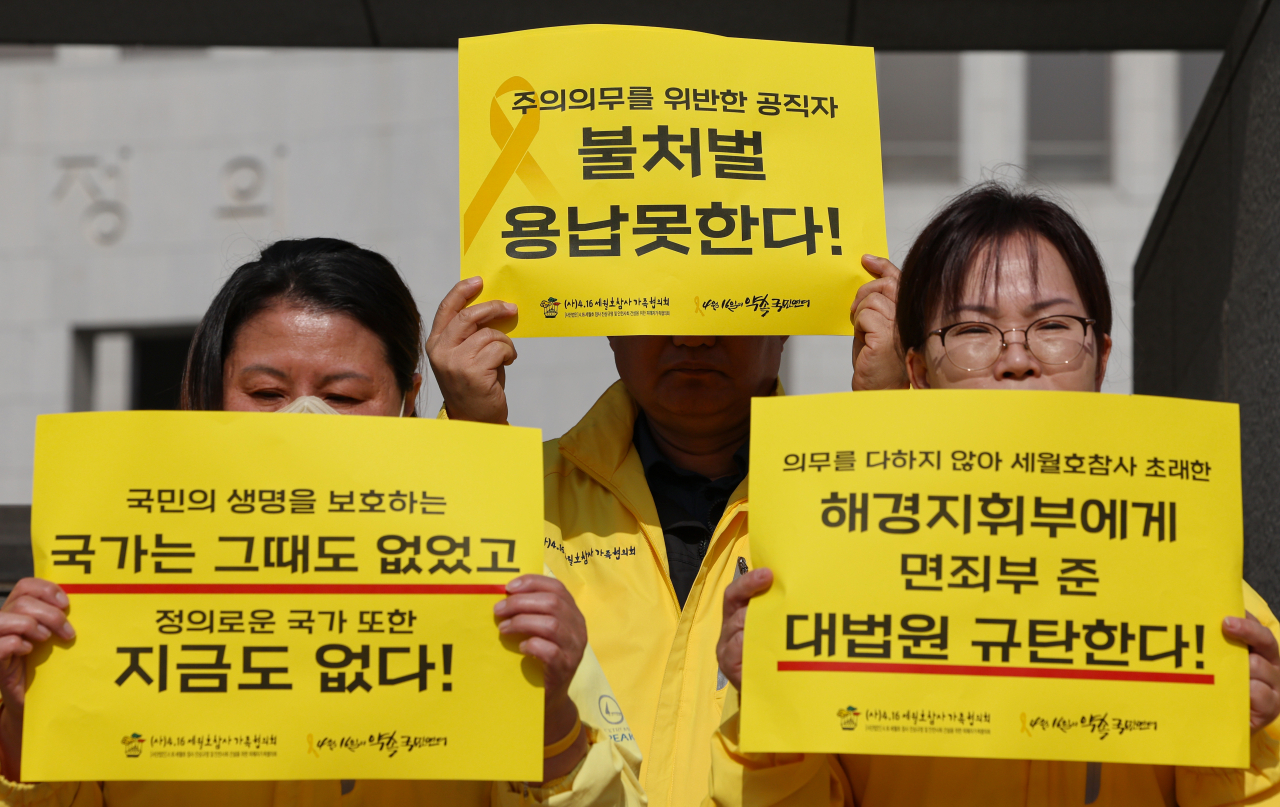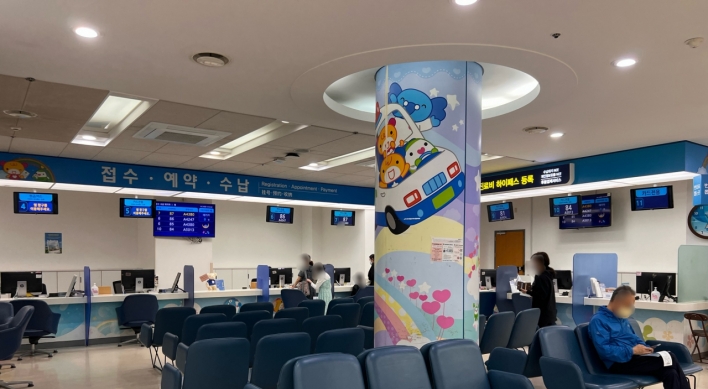Supreme Court acquits ex-coast guard leadership over Sewol ferry sinking
By Lee JaeeunPublished : Nov. 2, 2023 - 14:27

The country's top court on Thursday acquitted Kim Seok-kyun, former chief of the Korea Coast Guard, and nine other top officers, of involuntary manslaughter due to professional negligence in the 2014 sinking of the Sewol ferry, which left 304 passengers dead or missing, and 142 injured.
The Supreme Court found Kim, who was head of the Coast Guard when the 6,825-ton Sewol ferry sank in waters off the country's southwestern coast on the morning of April 16, 2014, not guilty of involuntary manslaughter due to professional negligence. The prosecution had charged that he had botched the rescue operation, leading to one of the worst mass tragedies in Korea in recent years. The prosecution appealed after Kim was found innocent in the second trial.
The nine other former and current senior officers of the Korea Coast Guard who were also indicted on the same charges -- including former chief Kim Seok-gyun and former West Coast chief Kim Soo-hyun -- were acquitted as well.
The Supreme Court upheld the results of the first and second trials, in which the defendants were found not guilty. “There was no error in the original ruling,” the Supreme Court stated.
During the trials, prosecutors argued that Kim and the other nine officers had failed to fulfill their professional duty to rescue as many passengers as possible, by urging the passengers to escape and ordering rescuers to enter the ship to save them. The prosecution argued that it would have been possible to rescue the passengers if Kim and the other senior officials had handled the situation properly. The prosecutors argued that the Coast Guard leadership was negligent both before and after rescue forces arrived at the scene of the sinking ferry and requested the court punish the defendants.
Earlier, the first and second trial courts ruled in Feb. 2021 and Feb. 2023, respectively, that Kim did not have enough information to issue an evacuation order to the passengers early on after the sinking. The maritime authority also had no way of knowing, the courts stated, that the ferry's captain and crew would abandon the passengers while telling them to stay there, without helping them evacuate.
During the early hours of the accident, the ferry's captain and crew sent an incorrect message to the Coast Guard that they had broadcast an announcement saying that passengers must evacuate, according to the court. They then left the sinking ship while the majority of the passengers remained inside. Survivors later said the crew had actually told them to stay in the ship, so when the ship capsized, most of the passengers remained inside. Only those who had climbed to the ship's deck or jumped into the water were rescued.
Kim apologized for the casualties but pleaded not guilty, saying that what happened could not constitute a crime under the law.
The victims' families -- many of them family members of 250 high school students on a school trip who died during the sinking -- however, expressed their outrage at the country's top court following the announcement of the acquittal.
The April 16 Sewol Families for Truth and a Safer Society, an association of bereaved families of the disaster, and the 416 Network, a civic group trying to create safer communities for the public and investigate the truth behind the tragedy, delivered their position on the top court ruling on Thursday in Seoul.
“As of today, trust in the judiciary branch of Korea has disappeared. The outcome of this trial failed to clarify (who holds) responsibility for the Sewol ferry disaster. Furthermore, it left many in despair (because) the state will (now) never be held accountable for other mass tragedies that might happen in the future.”
The Sewol ferry went down in waters off Korea's southwest coast while heading to the nation's southernmost island of Jeju. Out of 476 passengers and crew, the death toll came to 304, including 261 second-year students and teachers from Danwon High School in Ansan, Gyeonggi Province.






![[Grace Kao] Hybe vs. Ador: Inspiration, imitation and plagiarism](http://res.heraldm.com/phpwas/restmb_idxmake.php?idx=644&simg=/content/image/2024/04/28/20240428050220_0.jpg&u=)
![[Herald Interview] Mom’s Touch seeks to replicate success in Japan](http://res.heraldm.com/phpwas/restmb_idxmake.php?idx=644&simg=/content/image/2024/04/29/20240429050568_0.jpg&u=)


![[News Focus] Lee tells Yoon that he has governed without political dialogue](http://res.heraldm.com/phpwas/restmb_idxmake.php?idx=644&simg=/content/image/2024/04/29/20240429050696_0.jpg&u=20240429210658)









![[Today’s K-pop] Seventeen sets sales record with best-of album](http://res.heraldm.com/phpwas/restmb_idxmake.php?idx=642&simg=/content/image/2024/04/30/20240430050818_0.jpg&u=)